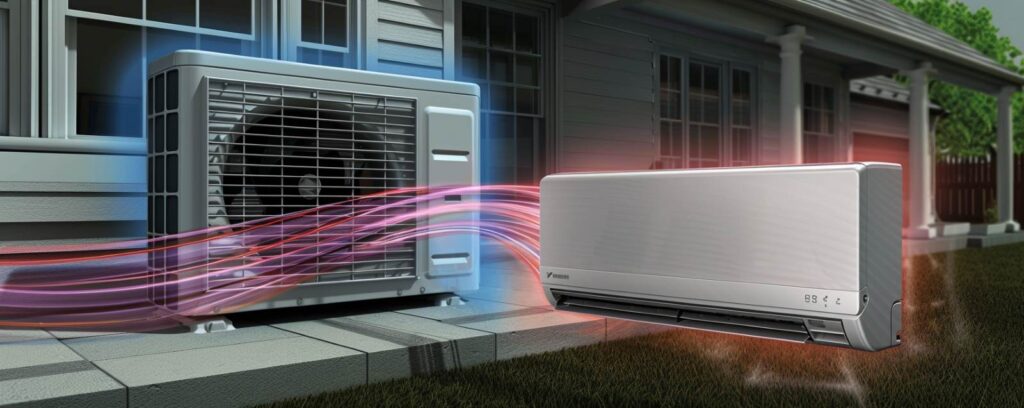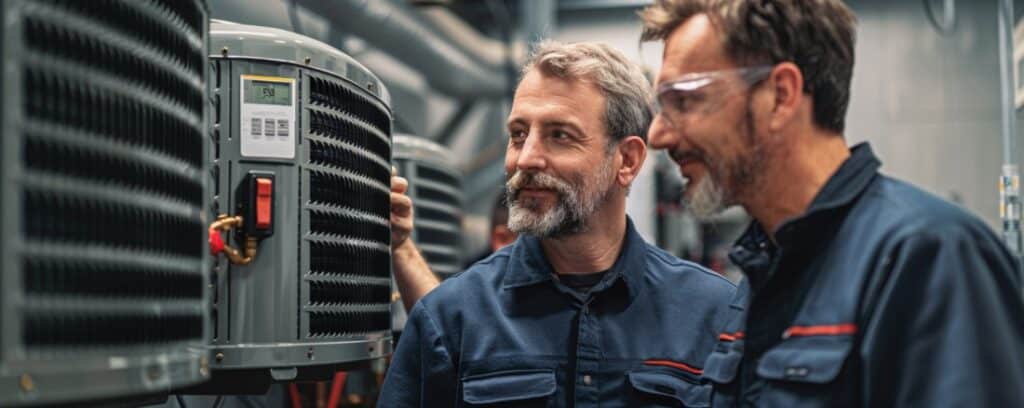- Your Guide to Career Advancement and Specialized Skills
- Providers of Commercial Refrigeration Training
- Formats of Training Programs
- Timelines and Cost of Programs
- Certifications for Commercial Refrigeration Specialization
- Job Outlook for HVAC Technicians
- What is the difference between HVAC and commercial refrigeration training?
- How long does it take to complete a commercial refrigeration training program?
- What certifications do I need for commercial refrigeration work?
- Can I complete commercial refrigeration training online?
- How does commercial refrigeration training impact job prospects?
Your Guide to Career Advancement and Specialized Skills
Commercial refrigeration training has become a sought-after specialization for HVAC professionals who want to deepen their expertise and expand their career prospects. This specialized training not only opens the door to higher-paying jobs but also enables technicians to work with more complex systems, including those used in industries like food service, healthcare, and retail.
If you’re an HVAC technician looking to advance your career, this guide will walk you through the key reasons to pursue commercial refrigeration training, the types of programs available, and the career benefits that come with specialization. Investing in continuing education can be the key to unlocking new opportunities and setting yourself apart in a growing field.
What is Commercial Refrigeration in the HVACR Field?
Commercial refrigeration is a specialized area within the HVACR field that focuses on the installation, maintenance, and repair of refrigeration systems used in commercial and industrial settings. These systems are designed to keep perishable goods at safe temperatures, making them critical in industries like food service, supermarkets, pharmaceuticals, and manufacturing.
Unlike standard HVAC systems, which primarily deal with heating and cooling air for comfort, commercial refrigeration systems are more complex. They require in-depth knowledge of thermodynamics, refrigeration cycles, and advanced mechanical systems. Technicians who undergo commercial refrigeration training gain the skills necessary to work on a variety of equipment, such as walk-in freezers, ice machines, refrigerated display cases, and large-scale cooling units.
As industries continue to grow, so does the demand for skilled HVAC technicians who can manage the unique challenges of refrigeration systems. This has made commercial refrigeration training a valuable path for technicians who want to expand their expertise and stay competitive in a rapidly evolving industry. By gaining specialized knowledge, you can set yourself apart and gain access to a wider range of job opportunities.
Commercial Refrigeration for Career Advancement
For HVAC technicians looking to advance their careers, specializing in commercial refrigeration can be a game-changer. While traditional HVAC work offers a broad range of opportunities, commercial refrigeration requires a more specific skill set, which can make you more valuable in the job market. By completing commercial refrigeration training, you position yourself for higher-paying jobs, leadership roles, and increased job security.
One of the key benefits of pursuing this specialization is the growing demand for technicians who can handle complex refrigeration systems. Businesses that rely heavily on refrigeration, such as grocery stores, restaurants, and healthcare facilities, require systems that run efficiently to protect their products and customers. This makes professionals with expertise in refrigeration systems highly sought after.
Additionally, as commercial refrigeration systems become more advanced and energy-efficient, businesses are increasingly looking for HVAC technicians who can install, maintain, and upgrade these systems. By focusing on this niche area, you can not only improve your current skill set but also make yourself indispensable to employers who are looking for specialists rather than generalists.
Continuing Education Programs in HVACR
To specialize in commercial refrigeration, HVAC technicians have a range of continuing education options that cater to different needs and schedules. These programs vary by provider, format, timeline, cost, and certification opportunities, making it easier for working professionals to find the right fit.
Providers of Commercial Refrigeration Training
There are several reputable sources where HVAC professionals can pursue commercial refrigeration training:
- Community Colleges: Offer associate degree programs and certification courses.
- Trade Schools: Provide targeted training specifically for HVACR professionals looking to specialize.
- Online Platforms: Offer flexibility for those who need to balance work with education, with courses on refrigeration systems.
- Manufacturers: Many equipment manufacturers offer specialized training on their products, allowing technicians to gain hands-on experience.
Formats of Training Programs
Training programs come in various formats, so technicians can choose the one that best fits their lifestyle:
- In-Person Classes: Typically offered at community colleges or trade schools, these courses often include hands-on workshops.
- Online Courses: Perfect for those who need flexibility, offering video modules, quizzes, and virtual simulations.
- Hybrid Programs: Combine online coursework with occasional in-person labs or workshops for practical learning.
Timelines and Cost of Programs
Continuing education programs vary in length and cost, depending on the provider and depth of the training:
- Short-term Certifications: Can often be completed in a few months, with costs ranging from $500 to $2,000.
- Associate Degrees: Typically take two years and can cost anywhere from $5,000 to $15,000, depending on the school and location.
- Financial Aid: Many schools offer scholarships, grants, or financial aid packages to help reduce the cost for HVAC technicians.
Certifications for Commercial Refrigeration Specialization
Certifications are a valuable way to demonstrate your expertise to potential employers. Some of the most recognized certifications for HVAC professionals specializing in refrigeration include:
- NATE (North American Technician Excellence): Validates your knowledge and skills in HVACR.
- EPA Section 608 Certification: Required by the Environmental Protection Agency (EPA) to work with refrigerants.
- Specialized Refrigeration Certifications: Many manufacturers or independent bodies offer certifications specific to commercial refrigeration systems.
Job Roles for HVAC Techs with Commercial Refrigeration Training
Specializing in commercial refrigeration training can open the door to a variety of job roles within the HVACR field. Technicians with expertise in this area are equipped to handle more complex systems and, as a result, often qualify for more advanced positions. Some of the key roles available to HVAC professionals with commercial refrigeration training include:
- Commercial Refrigeration Technician: Responsible for installing, maintaining, and repairing refrigeration systems in businesses such as supermarkets, restaurants, and hospitals.
- Refrigeration Service Manager: Oversees teams of technicians, ensuring that commercial refrigeration systems are installed and maintained properly. This role often involves managing large projects and coordinating service schedules.
- Installation Specialist: Focuses on the installation of new commercial refrigeration systems, often working directly with businesses during the construction or renovation of facilities.
- Refrigeration Engineer: Designs and develops refrigeration systems for commercial and industrial use. This role requires advanced technical knowledge and problem-solving skills.
Job Outlook for HVAC Technicians
According to data from the U.S. Bureau of Labor Statistics (BLS), the demand for HVAC technicians is expected to grow by 9% from 2023 to 2033, which is much faster than the average for all occupations. However, technicians with specialized skills in commercial refrigeration are likely to see even greater demand, as industries like food service, healthcare, and manufacturing increasingly rely on advanced refrigeration systems.
As commercial refrigeration systems become more energy-efficient and complex, employers are looking for technicians with the expertise to maintain and optimize these systems. By completing commercial refrigeration training, HVAC professionals can position themselves for long-term career growth in a stable and expanding industry.
Frequently Asked Questions (FAQ)
What is the difference between HVAC and commercial refrigeration training?
While HVAC training covers a broad range of systems involving heating, ventilation, and air conditioning, commercial refrigeration training specifically focuses on systems used to cool and preserve products in industries such as food service, pharmaceuticals, and manufacturing. Commercial refrigeration systems are often more complex and require specialized knowledge beyond standard HVAC skills.
How long does it take to complete a commercial refrigeration training program?
The timeline for completing a commercial refrigeration training program varies depending on the provider and format. Short-term certification programs can take as little as three to six months, while more comprehensive associate degree programs may take up to two years. Online and hybrid formats often allow technicians to work at their own pace, providing additional flexibility.
What certifications do I need for commercial refrigeration work?
The most common certifications for HVAC professionals working with refrigeration systems include EPA Section 608 Certification, which is required to handle refrigerants legally, and NATE (North American Technician Excellence) certification, which validates your technical skills. Additional manufacturer-specific certifications are available for those working with particular brands or equipment.
Can I complete commercial refrigeration training online?
Yes, many institutions and platforms offer commercial refrigeration training online. These programs often include video lectures, virtual simulations, and online assessments. Some programs may require hands-on labs or workshops, which can be completed in-person at scheduled times.
How does commercial refrigeration training impact job prospects?
Completing commercial refrigeration training can significantly improve your job prospects, especially as businesses continue to expand their reliance on advanced refrigeration systems. HVAC technicians with this specialized training are in high demand, which can lead to more job opportunities and higher-paying roles in a variety of industries.
Unlocking New Career Opportunities with Commercial Refrigeration Training
By pursuing commercial refrigeration training, HVAC technicians can enhance their skills, increase their earning potential, and open the door to a variety of specialized roles. Whether you’re looking to advance your current career or explore new opportunities in the HVACR field, this training provides a clear path to success in a growing industry.




